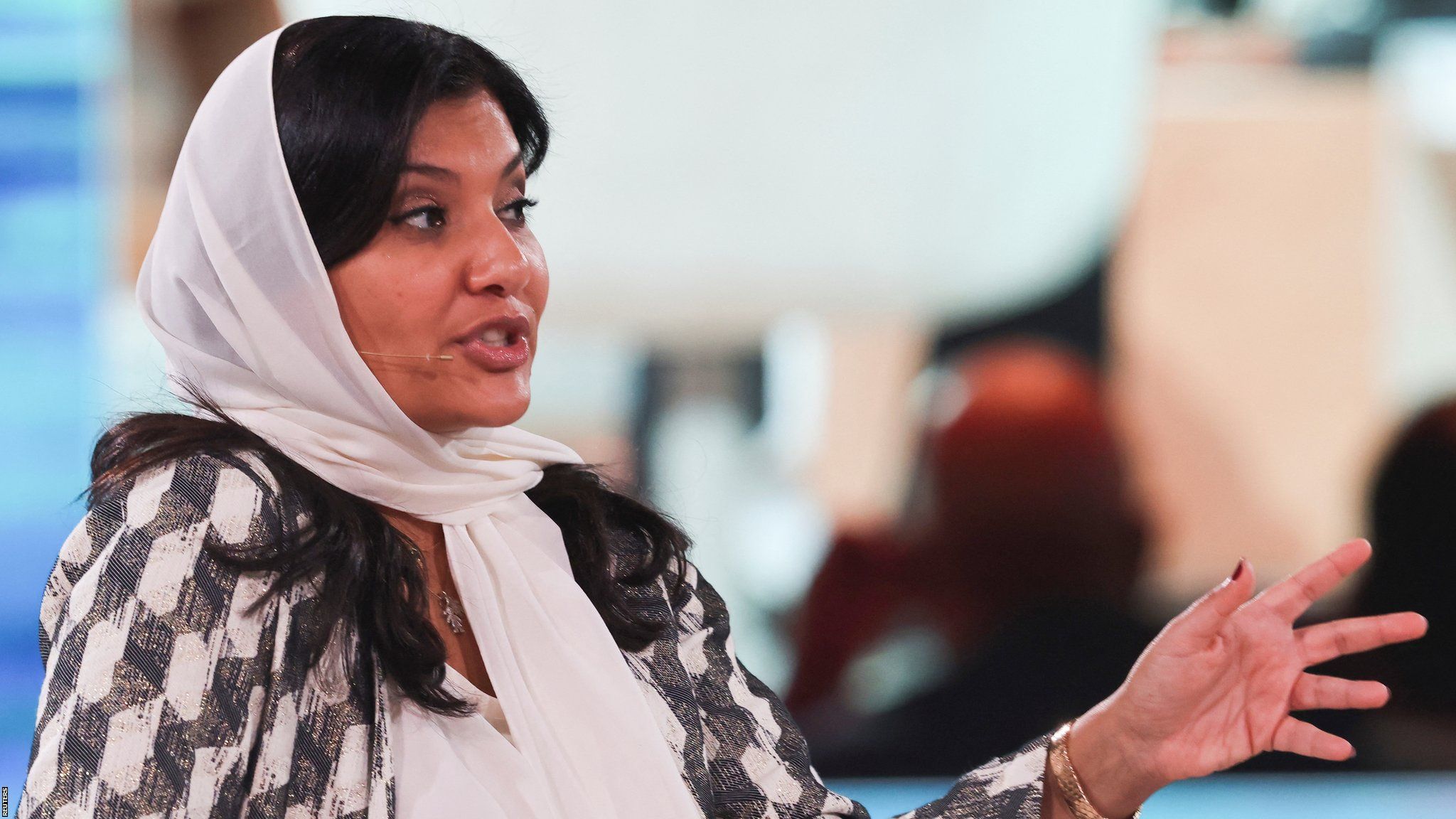 Reuters
ReutersTennis greats Martina Navratilova and Chris Evert have “turned their backs on women” by opposing plans to stage women’s events in Saudi Arabia, the kingdom’s ambassador to the United States has claimed.
Last week, the pair wrote an opinion piece outlining their opposition to hosting the WTA Finals in Saudi Arabia.
The WTA is considering moving the season-ending tournament to Riyadh.
Princess Reema bint Bandar al-Saud said their view was “beyond disappointing”.
-
Is it ‘right’ for women’s tennis to go to Saudi Arabia?
Navratilova, 67, and Evert, 69, each won 18 Grand Slam singles titles between 1974 and 1991.
Their opinion column in The Washington Post last week was headlined: ‘We did not help build women’s tennis for it to be exploited by Saudi Arabia’.
In it they said moving the “crown jewel” women’s event to Saudi Arabia was “incompatible with the spirit and purpose of women’s tennis and the WTA itself” and was a “significant regression”.
“Not only is this a country where women are not seen as equal, it is a country where the current landscape includes a male guardianship law that essentially makes women the property of men. A country which criminalises the LGBTQ community to the point of possible death sentences. A country whose long-term record on human rights and basic freedoms has been a matter of international concern for decades,” they wrote.
But in a statement issued on Tuesday, Princess Reema – who is also a member of Saudi Arabia’s Olympic Committee and an International Olympic Committee board member – said they had “turned their back on the very same women they have inspired and it is beyond disappointing”.
She did not address the pair’s criticism of laws which criminalise the LGBTQ community.
Al-Saud aid the pair should “get your facts straight” on matters of Saudi law affecting women and said their arguments were “based on outdated stereotypes and western-centric views of our culture”.
She added: “Failing to acknowledge the great progress women have made in Saudi Arabia denigrates our remarkable journey. This not only undermines the progress of women in sports, it sadly undermines women, progress as a whole.
“Sports should not be used as a weapon to advance personal bias or agendas or punish a society that is eager to embrace tennis and help celebrate and grow the sport.”
Critics of Saudi Arabia have accused the oil-rich kingdom of using its wealth to invest in sports in a bid to improve its image – known as ‘sportswashing’.
It follows recent heavy investment in golf, Formula 1, football and boxing in particular.
Campaigning organisations remain critical of Saudi Arabia’s record on human rights and equality.
Related Topics
- Tennis
